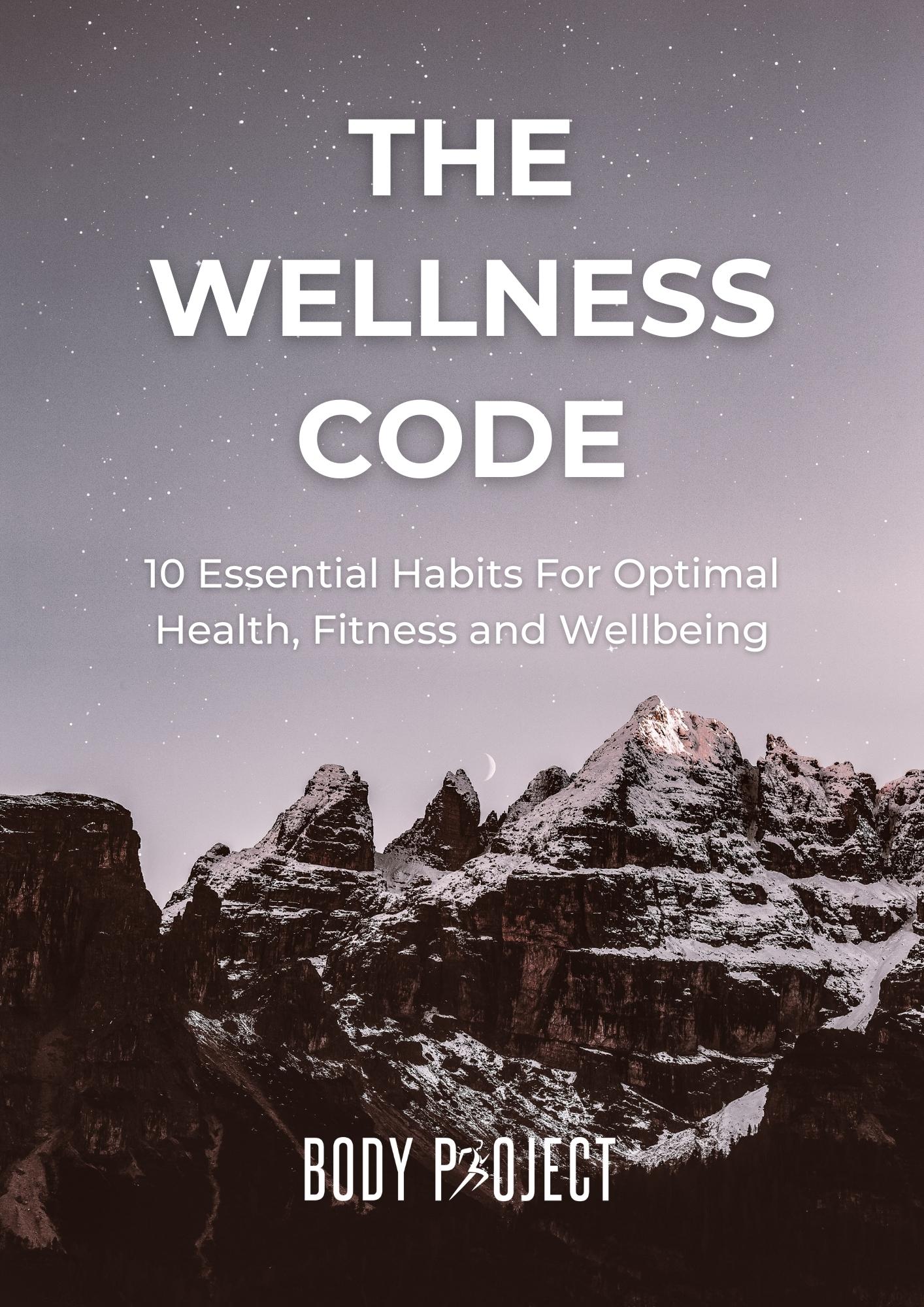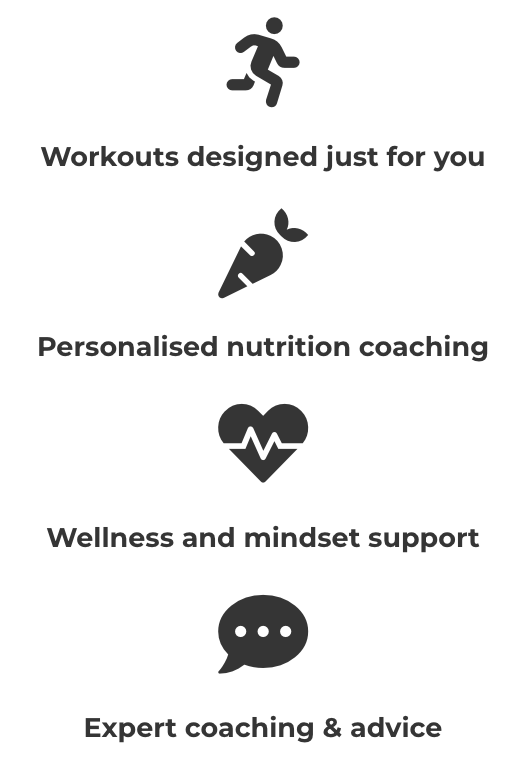Sign Up For Special Offers & Exclusive Content
Very often, people give up on dieting or exercise before they can see any substantial results. Ironically, the lack of visible progress is a common reason for quitting. It can be disheartening to put in so much effort and not see any reward, which is why it's so important to have realistic expectations about how long it takes to lose weight. Understanding this can help you stay on course, celebrate even the small victories, and overcome obstacles along the way.
The quickest (and safest!) way to lose weight is to stay consistent with your efforts. Plus, understanding how long it may take to lose weight can help you stay committed to your journey. While the answer to this question depends on several factors, this article will guide you on how to calculate the time it takes to lose a kilogram of body weight and then predict how long it might take you to reach your desired weight.
Unfortunately, a lot of the advice we get - especially from the fitness world - is too simplified and over-hyped. If you're familiar with our work, you know that at the Body Project we're committed to providing accurate information, even if it isn't always the easy or glamorous answer.
Calculating how long it takes to lose weight is pretty straightforward - we'll get to that shortly. But first, we need to cover some basics of nutrition psychology. Think of this as your quick-start guide to the science of weight loss.
Expert Tips On How To Lose Weight
Changing your eating habits isn't just about the logical steps outlined below. Whilst we might like to think of ourselves as logical decision-makers, humans are indeed emotional creatures! This post aims to break down the science into easy-to-grasp facts and help you let go of any mental barriers around food. By understanding these, not only will you gain insight into how long it'll take to lose weight, but the journey should also feel a bit less daunting.
Embarking on a weight loss journey and altering your habits is a long-term and sometimes challenging process. It can be an emotional rollercoaster. Trust me, it's better to start as you mean to go on. Too many people fall into the cycle of dieting, then binge eating, trying 12-week transformations or 7-day weight loss programs, and so on. While these tactics might give you quick results, they'll probably just waste your time in the long run, as it's likely you'll be back to square one soon after you stop the diet or meal plan. Strive for sustainable behaviour changes and keep persisting until you achieve your desired results. Having a positive mindset about setbacks is key for long-term success when figuring out how long it takes to lose weight.
Nutrition Basics
Whether we’re talking about nutrition for health, performance or weight loss, you’ve got three priorities, or levels to work through. In order of importance from highest to lowest:
- Get the right calorie balance for you and your goals;
- Balance your macronutrient intake (carbs, fats, proteins) to suit your needs;
- Get your food from good quality sources that provide an array of micronutrients.
Some important advice: focus on one thing at a time. A lot of people get tripped up trying to do everything at once, then end up disappointed when they can’t keep up with it all. In theory, you can see the results you want just by focusing on level one. You could lose weight on a diet of chocolate and ice cream if you really wanted to, providing the diet put you into a calorie deficit (I’ll explain what that is in a moment). Obviously we wouldn’t recommend this as it’d make you feel rubbish! To be clear, you don’t have to perfect each level before moving onto the next, but you do need your priorities in order. The point is that it’s okay - advisable, even - to relax your standards elsewhere while you work on the foundations.
What The Diet Industry Doesn't Want You To Know
Today we're going to talk you through level one: getting your calories balanced. This is the only way to lose weight naturally, and the science upon which all diets are based. we'll explain in detail the exact process we use to calculate our clients’ individual dietary guidelines, which involves us trusting you with some science and maths. This is the stuff the diet industry keeps a secret to keep you buying into products and services you don’t need. The material might feel heavy right now, but it’s a small investment to save you immense amounts of time, energy, and money in your future!
What Is A Calorie Deficit?
If you want to lose weight quickly, it's important you understand what the term "calorie deficit" means.
Calories are a measure of the energy you receive from the food you eat. In just a second, we'll help you work out your daily “maintenance calories”: that’s roughly how much you need to eat to maintain your current weight. From there, you'll be able to decide on a calorie deficit that works for you. When you’re in a calorie deficit, you're eating fewer than your maintenance calories, and this causes you to lose weight. In a “calorie surplus” - that is, when you're regularly eating more than your maintenance calories - you’ll gain weight.
It’s important to take these numerical figures with a pinch of salt (or sugar, whatever’s your poison). They’re just a guideline. We rarely eat exactly our maintenance calories, but if things even themselves out over the course of a week, then you’ll maintain your bodyweight. Any rapid weight loss or gain is generally a red flag for me as a coach. Healthy weight changes are gradual, so if you’re looking to lose weight quickly then you may be doing so at the expense of your health. There’s a limit to how much of a deficit you can healthily maintain for any extended period. We’ll get into that, too.
How To Create A Calorie Deficit
When it comes to weight loss, calorie intake is your most important consideration. Common weight loss methods such as structured diets, cutting carbs/fats, or avoiding specific foods aren’t solutions to weight loss in and of themselves, rather methods for creating a calorie deficit. Different methods work for different people based on personal preference, genetics and lifestyle factors. The best solution to weight loss lies in using or creating a calorie deficit strategy that works for you.
The content of your diet is entirely your choice. Ideally you’d have a good balance of proteins, carbs, fats, fibres, and sugars, but that’s level two. Level three is where you’d start to get even more granular, choosing the best possible food sources to get a good balance of micronutrients, or vitamins and minerals.
Mastering Level one by controlling your calories is your first priority. Know that this process involves weeding out old, unhelpful thoughts and behaviours, and learning new, more helpful habits. It’s a trial and error process, so be patient with yourself. For the quickest results, We'd strongly recommend working with a professional who can coach you on both nutrition and mindset, so that you can avoid taking any health risks, and also build better behaviours for life.
What's A Healthy Calorie Deficit For Fast Weight Loss?
Did you know that 1kg of body fat is roughly equivalent to 7,777 calories? Based on that fact, in theory, to lose 1kg of body fat you could simply eat 1,111 fewer calories per day for a week, equating to an overall deficit of 7,777 calories, and a kilo of fat lost.
In reality, there's a reasonable limit to how much of a calorie deficit you can place your body in. Here is where things get personal, as we’re about calculate your personal requirements. Grab a pen and paper, and have a calculator to hand. We're about to talk you through the calculations we use in our personal coaching programs to work out our clients’ individual energy requirements for their goals.
BMR: How To Calculate Basal Metabolic Rate
Your BMR, or Basal Metabolic Rate, refers to the minimum amount of calories you must eat daily to perform all your vital bodily functions, like breathing and pumping blood around your body. This doesn’t include any calories required for movement.
Most coaches find the Harris-Benedict formula (below) the most reliable way of calculating a person’s BMR, although there are other methods. Without chopping you up into little pieces and measuring everything out, formulas such as this one are the most realistic method available to most people for calculating calorie requirements. You must remember that the results simply provide an estimate. Individual differences such as muscularity and obesity must be taken into account. Speak to a qualified professional for more information.
NB: This formula might feel challenging, but it's essential to acknowledge that weight loss is a science, not a cute instagram caption or fancy diet plan.
For women, it's this:
(655.1 + 9.6(weight in kg) + 1.9(height in cm) - 4.7(age in years))
And for men:
(66.5 + 13.8(weight in kg) + 5(height in cm) - 6.8(age in years))
If you’re not feeling overly maths-y today then you can use this online calculator for these more difficult equations. Rest assured the following calculations in this article are much simpler.
TDEE: How To Calculate Total Daily Energy Expenditure
Now you've worked out your BMR (well done!), the next step is to calculate your Total Daily Energy Expenditure, or TDEE. This is how many calories you’ll need to consume to maintain your current weight, or your "maintenance calories". To do this, take your BMR and multiply it by the activity factor that best describes you:
Sedentary lifestyle: sitting for most of the day with no exercise
BMR x 1.2 = TDEE
Some daily movement: light activity for some of the day with light/moderate exercise
BMR x 1.375= TDEE
Somewhat active: moderate activity for much of the day with light/moderate exercise
BMR x 1.5 = TDEE
Active lifestyle: light/moderate activity for most of the day with moderate/intense exercise
BMR x 1.725 = TDEE
Athlete: moderate/intense activity with intense exercise
BMR x 1.9 = TDEE
How Many Calories Should You Eat To Lose Weight?
Now we understand your maintenance needs, we can calculate a sustainable calorie deficit for you. For most people we recommend creating a minimum 5% and a maximum 15% calorie deficit in your diet for healthy weight loss. Any less than 5% and you may not see results. Any more than 15% and you could be at risk of losing healthy muscle mass, as well as experiencing temporary declines in cognitive and physical function, mood, and exercise recovery. At the most extreme, your maximum calorie deficit shouldn't be lower than your BMR (the first calculation you did).
Next we'll need to calculate a daily calorie deficit of 15%, so take your TDEE and multiply it by 0.15, like so:
TDEE x 0.15 = calorie deficit
The resulting figure represents a healthy calorie deficit for you. You can safely remove this number of calories from your daily intake to lose weight whilst maintaining your physical and cognitive health.
How Long Will It Take To Lose Weight?
Remember that 1,111 calorie deficit we spoke about earlier? Now you’re seeing what a sustainable calorie deficit could look for you, surely you can imagine how extreme it’d be to cut over 1,000 calories from your diet per day (for most people). The deficit you’ve just worked out for yourself carries a low risk of having any negative effects on your health, and will promote a healthier lifestyle in the long run. When you do lose weight, you’ll be more likely to keep it off if you haven’t used extreme methods to get there.
Whilst it’s possible to lose 1kg body fat per week, we’d probably need to incorporate some exercise to make that goal realistic. As it’s tough to estimate how many calories you’d burn from exercise, let’s first find out how long it’ll take you to lose 1kg at the deficit we’ve calculated from your nutrition alone…
Search Posts
Free Download
Popular Posts
Discover Online PT
How Long Does It Take To Lose 1kg?
To calculate how long it’ll take you to lose 1kg, divide 7,777 by the 15% calorie deficit you just worked out.
7,777 / calorie deficit = days to lose 1kg
If you're feeling a little deflated by how long that seems to lose a single kilogram of body fat, remain patient as we haven’t taken exercise into account yet! Let’s say you burn 500 extra calories per day, which is roughly equivalent to an hour of moderate intensity exercise. We can add those 500 calories to your existing 15% deficit figure:
500cals + calorie deficit = new calorie deficit from diet & exercise combined
Now we can work out how long it'll take you to lose weight from diet and exercise:
7777 / new calorie deficit = days to lose 1kg
Phew! That seems like a more reasonable length of time, right? Generally speaking, weight loss of 0.5kg - 1kg per week from diet and exercise is a safe and achievable target.
Now you know how many days it’ll take to lose 1kg, you can extrapolate to get an estimate of how long it could take you to lose any other kg target you have in mind. If you have a lot of weight to lose, remember to regularly re-calculate your BMR as it will change in line with your bodyweight.
Weight Loss Need-To-Knows
Congratulations! You now have a daily calorie target to work towards, plus a good idea of roughly how long it should take you to achieve your weight loss goal. Understanding how long the process could take is a great way to manage your expectations and encourage consistency, as well as reducing your chances of feeling disappointed or giving up.
For weight loss, it’s best to focus on your calorie goals before trying too hard to meet any other nutritional requirements. Once you’re consistently hitting your calorie target most days, you’ll then be able to fast-track your results further by advancing to levels two and three.
A couple more things worth mentioning:
- Your training programme must supplement and support your goals. That means doing the right sorts of workouts at an appropriate frequency.
- It’s also essential to consider the effects of hormonal issues such as pregnancy, menopause, PCOS or diabetes on your ability to make dietary changes, take up exercise, and lose weight. The information in this article may not be fully applicable to people with these types of health concerns.
- Your support network can help or hinder your progress. Just be aware of your influences.
How To Lose Weight Fast
We understand you might be feeling frustrated about how long it’ll take you to lose weight, including how much effort might be involved. Unfortunately, using shortcuts and fast weight loss plans only solves the “problem” of being overweight, and not the actual problem(s) that caused you to become overweight in the first place: your eating behaviours and activity level. These aren’t necessarily your fault, but a result of your conditioning, environment, available resources, etc. Although your unhelpful habits may not be your fault, they are your responsibility - nobody can do the work for you. Weight loss is quicker and longer lasting when we update our mindset, beliefs and behaviours, including habits and routines.
By improving your understanding of these basic nutrition principles, you’ve just empowered yourself to improve your eating behaviours. This will not only support you to achieve and maintain a healthy bodyweight long term, but will also empower you to develop skills that will benefit you for the rest of your life.
Online Coaching provides expert support, tailored exercise plans and nutrition & lifestyle guidance to help you become the best version of yourself.
Read More Helpful Articles
Subscribe For New Post Updates
Receive new posts, special offers, discounts, plus exclusive content that we only send out via email.
Don't miss out!







